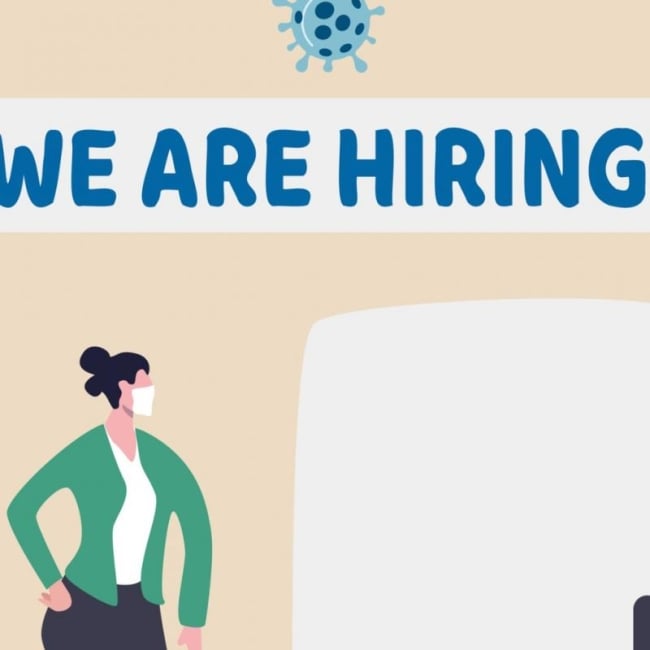You have /5 articles left.
Sign up for a free account or log in.

Istock/nuthawut somsuk
Navigating a new job at any point in a professional career can often be intimidating or overwhelming. Doing so in the midst of a campus, community or even global crisis only further compounds those feelings.
On January 27, I started my first day at a new institution, after spending the previous week moving across the country in the middle of a snowstorm. Less than two months later, the world would be facing a pandemic that has infected millions, killed thousands and devastated the nation's economy. Navigating this crisis has been incredibly daunting and anxiety-inducing for both seasoned professionals and newly hired individuals who are still trying to get a solid understanding of their positions and the new people around them.
While many institutions have implemented a hiring freeze to mitigate the unforeseen and damaging financial consequences of this pandemic, I hope to pass on some lessons I've learned to those people who are able to transition to new jobs either during or soon after this global crisis. Below are five key elements that have significantly helped me to not only learn and succeed in my new role, but also to grow in my personal and professional health during a time of extreme uncertainty.
#1. Context. When you first start a new position, people commonly advise you to spend time learning the office, department and institutional culture. Taking the opportunity to learn the historical precedence of decision-making or the professional status quo can give you a better understanding of the "why" and how to best either adapt as a new member of the team or develop convincing arguments for proposed changes.
In a crisis, however, the importance of context within an office, department or institution becomes further heightened. Critical decisions, often needing a clear understanding of far-reaching impacts, must be made quickly and decisively. The ability to know the history of your professional environment will help you better grasp those long-term impacts and determine how you can best help your unit and institution successfully move forward.
If your office or department does not provide a clear onboarding session, including highlighting common practices or traditions at your institution, ask your supervisor to summarize the information they believe that you, their direct report, need to best perform your job in both "normal" times, as well as crises.
#2. Patience. Starting a new position, whether mid-year or during the traditional hiring period, often requires patience with processes. Anything from human resources checklists to having the IT department establish your computer system to even getting an identification card to enter your office building often takes time.
During the pandemic, however, we have seen that those offices, along with many others, are pulled in various directions to solve problems quickly at all hours of the day. Thus, you should try to approach what you might perceive a problem with an easy solution with patience, as many institutions require multiple levels of approvals when onboarding staff members. Rather than getting frustrated about minute details, ask your supervisor to help you develop an effective plan to accomplish many of the smaller tasks required to start the job. From there, reach out to department or institutional resources to gain a better understanding of who can best support you in accomplishing the final set of tasks.
#3. Flexibility. Before starting a new job, people often have an ideal or dream of how their position and the professional environment will be. But flexibility and grace are almost always required in order to strive toward this vision. While you shouldn't completely change who you are or want to be in your professional role, some ability to adapt is required. In times of upheaval, the capability to deftly change tasks or priorities to best serve the students or the campus community at large will showcase you as a successful employee.
As has been evidenced during this global pandemic, priorities and tasks are often changing, sometimes within hours or minutes. Therefore, it's best to try to narrow your tasks down in a way that best works for you, such as by priority or ease of achievement. Along with asking your supervisor for clarification of instruction or priorities, that will enable you to accomplish tasks while remaining flexible as needed.
#4. Communication. Throughout the job search and hiring process, communication is vital. From first establishing interview times to booking travel for the campus visit to even negotiating and accepting an offer, clear communication is needed from both you and your employer. And when an office, department or institution then shifts into times of crisis, communication becomes even more essential. As I've already mentioned, patience and flexibility are highly valued, both in times of standard business practices and crises. But while those qualities are important, the need to communicate your limits and needs to supervisors and coworkers is equally so, notwithstanding the current global crisis. By clearly articulating as a new employee those limits and needs to your supervisor or coworkers, you will create clear boundaries that will help you sustain your career over the long haul, while also being mindful of your personal health. Burnout in the field of higher education can be seen throughout many functional areas.
#5. Relationships. Higher education is built upon relationships. That said, the process of establishing them can be intimidating for any new professional -- and especially for introverted individuals who can feel nervous going outside their comfort zone. But by reaching out to people within your department and across the institution for lunch meetings or casual coffee runs, you can establish a productive, positive and vital network of supportive colleagues.
During crises, particularly this one, the opportunity to connect with new people around you might not be available as in more normal times. But this lack of opportunity should not be a complete barrier to your getting in contact with those who can give you insights and guidance, as well as empathy and understanding about the challenges you are encountering. While the traditional approaches of building relationships, like lunch or coffee, might not be available, reaching out to individuals via email, phone calls or video conferences will still allow you to establish and sustain meaningful connections.
These five elements are just some of the qualities that have made my continuing transition to my new job in a time of extreme global upheaval as smooth and successful as possible. I have been fortunate and privileged to have entered a department with a supervisor and coworkers who are compassionate and excited to see me grow professionally and personally. Recognizing many of you may be dealing with different scenarios, I hope that you are also able to develop your own additional strategies during this challenging period.




